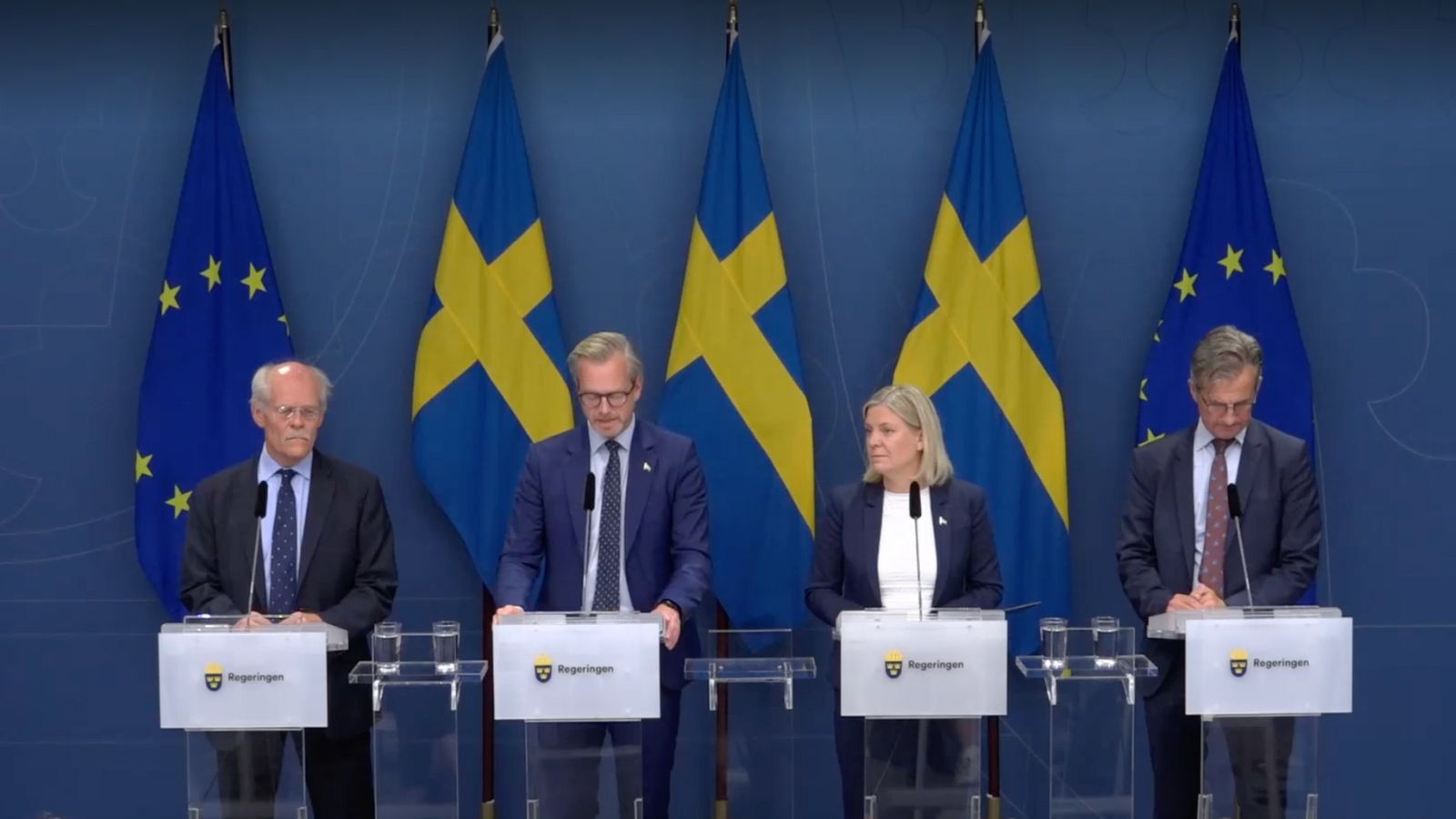Risk Advisory in the Renewable Energy Sector
Three of six GCC countries have announced net-zero commitments As of August 2022, three out of six GCC countries have published targets for net-zero...
2 min read
Johnny Kollin
:
05 September 2022 14:29:44 GST

In early September 2022, several governments in the European Union announced various exceptional support measures for utility companies. What is the background to the government liquidity guarantees?

Stefan Ingves (Governor of the Swedish Central Bank), Mikael Damberg (Minister for Finance), Magdalena Andersson (Prime Minister of Sweden), and Erik Thedéen (Director General of the Swedish Financial Supervisory Authority) at a press briefing on 3 September 2022, announcing the credit guarantee support package. Photo: Regeringen.se.
On 3 September 2022, the Government of Sweden announced a SEK250 billion ($23.2 billion) credit guarantee support package to utility companies registered as members with Nasdaq Clearing AB. This group includes companies established in Sweden, as well as in Finland, Denmark, Norway and the Baltic countries “until those countries have put in place similar liquidity measures”. The Government said the guarantee support package could potentially be extended to other types of counterparties that are members of the same clearing house. The Government of Finland announced a EUR10 billion credit and loan guarantee scheme for the energy sector shortly after. Two days later, the Swedish Parliament approved the proposal at an extraordinary parliamentary hearing.
Nasdaq Clearing is a so-called central counterparty clearing house (CCP) that provides clearing services for the Nordic markets. The process of transaction clearing involves the matching of buy and sell orders.
CCPs were introduced after the global credit crisis to reduce settlement risk between parties in financial markets. Members of the clearing house must post collateral to ensure they can meet their future obligations. Failing to do so may lead to the CCP declaring them in default and taking measures to liquidate their positions in the market to minimise losses.
CCPs are considered systemically important institutions because they effectively concentrate the counterparty credit risk in a few institutions. Therefore, the failure of one CCP could create systemic risks to financial stability.
The Head of the Swedish Financial Regulatory Authority (Sw: Finansinspektionen) said at a press conference on 3 September 2022 that Nasdaq Clearing members have raised concerns they may not be able to meet such margin calls due to the lack of cash, even though they are solvent. Due to higher and more volatile energy prices, participating members are required to post larger amounts of collateral in the form of both initial margin and variation margin to cover their positions. This situation is expected to be exacerbated after Gazprom’s announcement that Nord Stream 1 – the Russian gas pipeline to Europe – will remain closed indefinitely.
The Government and the Financial Supervisory Authority said they are concerned that a potential “technical” default of even a small member company that fails to meet a margin call could trigger knock-on defaults. That could, in turn, lead to systemic risk incidents, including jeopardising the viability of Nasdaq Clearing and eventually spill over to other parts of the financial system.
Because of the concerns, the Government of Sweden plans to provide SEK250 billion ($23.2 billion) of credit guarantees to utility companies registered as members of Nasdaq Clearing. This may potentially be extended to cover other types of member companies, too. It includes companies established in Sweden, as well as in Finland, Denmark, Norway and the Baltic countries for the first two weeks “until those countries have put in place similar liquidity measures”.
The Government of Finland has announced a EUR10 billion support package consisting of loans and guarantees.

Three of six GCC countries have announced net-zero commitments As of August 2022, three out of six GCC countries have published targets for net-zero...

On Monday, 15 August 2022, Fitch Ratings upgraded Oman’s long-term foreign currency issuer default rating by one notch from ‘BB-’ to ‘BB’ with a...

Sharjah, the third largest emirate in the United Arab Emirates (UAE), saw its credit ratings downgraded to non-investment grade on Tuesday. Moody’s...